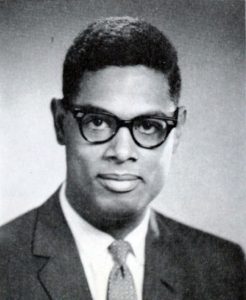

CHULA VISTA, California — Thomas Sowell is one of the greatest intellectuals in the world today. Back in 1999, he wrote a remarkable book, The Quest for Cosmic Justice.
He relates in his book about the time in 1919 when The Bolsheviks created the secret police known as the Cheka. The similarities among the rhetoric of the Antifa, some of the Black Lives Matter movement, and the Cheka are astounding. Sowell cited records from that era, which ought to sound familiar to us—a century later:
- “We reject the old systems of morality and ‘humanity’ invented by the bourgeoisie to oppress and exploit the ‘lower classes.’ Our morality has no precedent, and our humanity is absolute because it rests on a new ideal. Our aim is to destroy all forms of oppression and violence. To us, everything is permitted, for we are the first to raise the sword not to oppress races and reduce them to slavery, but to liberate humanity from its shackles…. Blood? Let blood flow like water! Let bloodstain forever the black pirate’s flag flown by the bourgeoisie, and let our flag be blood-red forever! For only through the death of the old world can we liberate ourselves from the return of those jackals.”
This exposition explains why redness is an essential symbol of Communism. But Sowell narrates how the Bolsheviks caused nothing but mayhem:
- The Bolsheviks had set themselves the task to remake the world according to the Marxian vision of a classless society. But to do so required the destruction of the “exploiting” classes, an overthrow of the existing property relationships and the remolding of “the masses” into a “new socialist man.” The Bolsheviks viewed themselves as a privileged elite, led by Lenin, to remake man and mankind, and all according to a compulsory master plan. After all, said Feliks Dzerzhinsky, the first chief of the Soviet secret police, the masses “are so ignorant that they have no idea what is really in their own interest.” To achieve this task, the uninhibited spilling of oceans of blood was considered an acceptable price to pay for utopia.
The quest for cosmic justice is a desire to create or “recreate” a Utopian society. Unfortunately, the authoritarianism of Utopian leaders is harsh and unforgiving to anyone who challenges their ideas. The belief in the Utopian State requires power to be concentrated in a central authority with maximum latitude to transform and control. In contrast, our U.S. Constitution establishes parameters that seek to limit the powers of government.
Utopian-minded individuals fail to grasp that human beings are not perfect beings, and every generation needs to be judged by the measure of its generations.
Rabbinic wisdom tells us that Jephthah in his generation was comparable to Samuel the prophet in his generation. One might ask: Jephthah was totally insignificant to Samuel; how could the rabbis equate the two? In reality, every generation has leaders who are suitable to their time. Past generations had their issues, as we do ours.
We cannot unmake the past. If there are social inequities that exist in the world today, we must address these issues not through violence; not through intimidation, and not through intolerance. When it comes to imperfections, no society has ever been perfect. Santayana said, “He who does not learn from the past is condemned to repeat it.” Those who advocate revolutionary violence in destroying the monuments of Lincoln, Jefferson or Washington are showing a profound disrespect to the sacrifices our nation made to establish liberty and democracy. Rabbi Tarfon used to say: It is not your duty to finish the work, but neither are you at liberty to neglect it.[1]” Every generation has a role in completing the job that our forebears started. It is wrong to demonize them and ignore the valuable contributions they made in making this great nation—sometimes even in spite of themselves.
1776 began a radical new experiment—one that never existed before. The Constitutional republic of our name is predicated upon individual liberties. The founders recognized the potential tyranny government can exert when it seeks to undermine the freedom of speech and conscience. The State must be a steward of liberty and not a master of liberty. The belief that the State is the salvation of the country is borderline idolatrous. It threatens the character of our country and our way of life. Utopianism scorns the Constitution’s concept of “the inalienable rights of the individual.”
Today, you can see attempts to limit freedom of speech on Google, Youtube, Facebook, and Twitter. I suspect there will be some landmark cases determined in the future, as we observe a gradual whittling away of our inalienable rights, not to mention our right for privacy.
Let me conclude with some words of wisdom from Sowell. The fact he wrote this in 1999 shows the great vision of this American thinker:
- The fundamental principle of the American experiment in freedom, Sowell argues, was captured in the Bill of Rights, where it was clearly stated that “Congress shall make no law….” To be exempt from the laws that government might wish to impose to restrict our peaceful conduct is the essence of constitutionally protected liberty. And it is this freedom that is being threatened in America and the world in general by those who, like the Bolsheviks, continue to claim that everything is permitted to them in the pursuit of making us and our world over into their utopian image of how they think we should be.
And the rest is commentary.
[1] Avoth 2:6.
*
Rabbi Michael Leo Samuel is spiritual leader of Temple Beth Shalom in Chula Vista. He may be contacted via michael.samuel@sdjewishworld.com
Typo in headline – left off the L in ‘Bolshevik.’